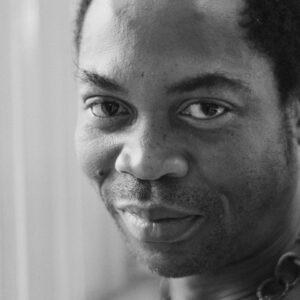
Budgeting Tips for Financial Success
Getting your finances in order is the first step towards financial stability and wealth. This guide offers budgeting tips and money-saving strategies to help you manage your money better. You’ll learn how to track your income and expenses, make a realistic budget, and cut costs.

If you’re dealing with debt, saving for a home, or just want a strong financial base, learning personal finance management is crucial. This guide shares effective budgeting tips and money-saving strategies. Follow these tips to reach your financial goals and secure a brighter future.
The Importance of Budgeting
Managing your finances well is key to financial stability and reaching your goals. Budgeting is a vital part of this. It lets you control your money, track your spending, and set you on the path to success.
Why Budgeting is Crucial for Financial Stability
With a budget, you can see where your money goes and adjust as needed. It helps you track your income and spending. This way, you can spot where you’re spending too much and change your ways.
Setting financial goals is easier with a budget. You can aim to pay off debt or save for a big purchase. And you can keep an eye on how well you’re doing towards these goals.
Understanding Your Income and Expenses
First, get clear on your income sources, like your job, investments, or extra work. Then, list all your expenses, separating them into fixed and variable costs. Knowing this helps you make a budget that really works for you.
By focusing on personal finance management and financial planning, budgeting helps you control your spending. This way, you can reach financial stability and move closer to your goals.

Creating a Realistic Budget
Making a budget is more than just writing down what you earn and spend. It’s about planning carefully to match your financial goals with your spending. By making a realistic budget, you can manage your money better and make smart choices about how to use it.
Budgeting: Setting Financial Goals
Start by setting your financial goals. These can be short-term, like paying off credit card debt, or long-term, like saving for a house. Knowing what you want will help you spend wisely and make sure your budget helps you reach your goals.
Budgeting: Tracking Your Spending
Good budgeting tips come from knowing how you spend your money. Keep track of all your expenses to see where it goes. You can do this by hand or use apps that sort your spending for you.
After seeing where your money goes, you can cut back or move funds to fit your money saving strategies and expense tracking goals.

With a realistic budget and an eye on your spending, you can make better financial choices. This approach can improve your financial health and help you meet your budgeting tips goals.
Effective Money-Saving Strategies
Getting financially stable and building wealth takes a mix of strategies. Cutting costs and living frugally are key. There are many ways to save more and grow your savings over time.
Identifying what you don’t need to spend money on is a good start. Then, find ways to lower your regular costs. This section will give you tools and knowledge to save more of your money. By using money saving strategies, cost-cutting techniques, and frugal living hacks, you can control your finances and secure a bright future.

Budgeting: Prioritize Needs Over Wants
Knowing the difference between needs and wants is crucial for saving money. Review your spending and sort your expenses into needs and wants. Cut back on things like eating out, entertainment, or buying on impulse. Use that money for important needs and savings goals.
Leverage Coupons and Discounts
Smart shoppers use coupons and discounts to lower their costs. Spend time finding and using coupons for groceries, household items, and more. Also, join loyalty programs for special discounts and perks.
- Look for coupons online and in newspapers
- Join loyalty programs and sign up for newsletters
- Buy things during sales and promotions
Embrace a Minimalist Lifestyle
Minimalism helps you save money by living with less. It means less clutter, fewer impulse buys, and valuing experiences over things. Be thoughtful about what you buy and regularly check if you really need something.
Budgeting: Cutting Unnecessary Expenses
One of the best ways to manage money is to cut unnecessary expenses. Look closely at how you spend money to find places where you can save. This helps improve your financial health.
Identifying and Eliminating Discretionary Spending
Start by sorting your expenses into two groups: essential and discretionary. Essential costs are things you need to live, like rent, utilities, and food. Discretionary spending is for things you don’t really need, like eating out, entertainment, and buying things on impulse.
After you know what you’re spending on, pick which discretionary expenses you can cut back on. This might mean canceling subscriptions, eating in more often, or finding cheaper ways to have fun. By saving money here, you can put it towards your goals.
FAQ
What is the importance of budgeting?
Budgeting is key for financial health. It helps you understand your money in and out. This way, you can make smart choices about your finances.
By budgeting, you can get financially stable, cut down on debt, and grow your wealth.
How do I create a realistic budget?
To make a realistic budget, start by setting financial goals. Then, track how you spend your money. Finally, divide your income among different expenses.
This approach helps match your budget with your financial goals. It also helps you make better money decisions.
What are effective money-saving strategies?
Good money-saving strategies include cutting unnecessary costs and living frugally. These methods help you make your budget go further and increase your wealth.
How do I identify and eliminate unnecessary expenses?
To cut unnecessary expenses, first, look at how you spend your money. Then, spot areas where you can spend less. Finally, make cuts to boost your financial health.
How can I build an emergency fund?
Building an emergency fund is vital for financial security. Set aside part of your income each month for unexpected costs like medical bills or car repairs.
Experts suggest saving enough for three to six months of living expenses. This fund helps you stay financially stable.


